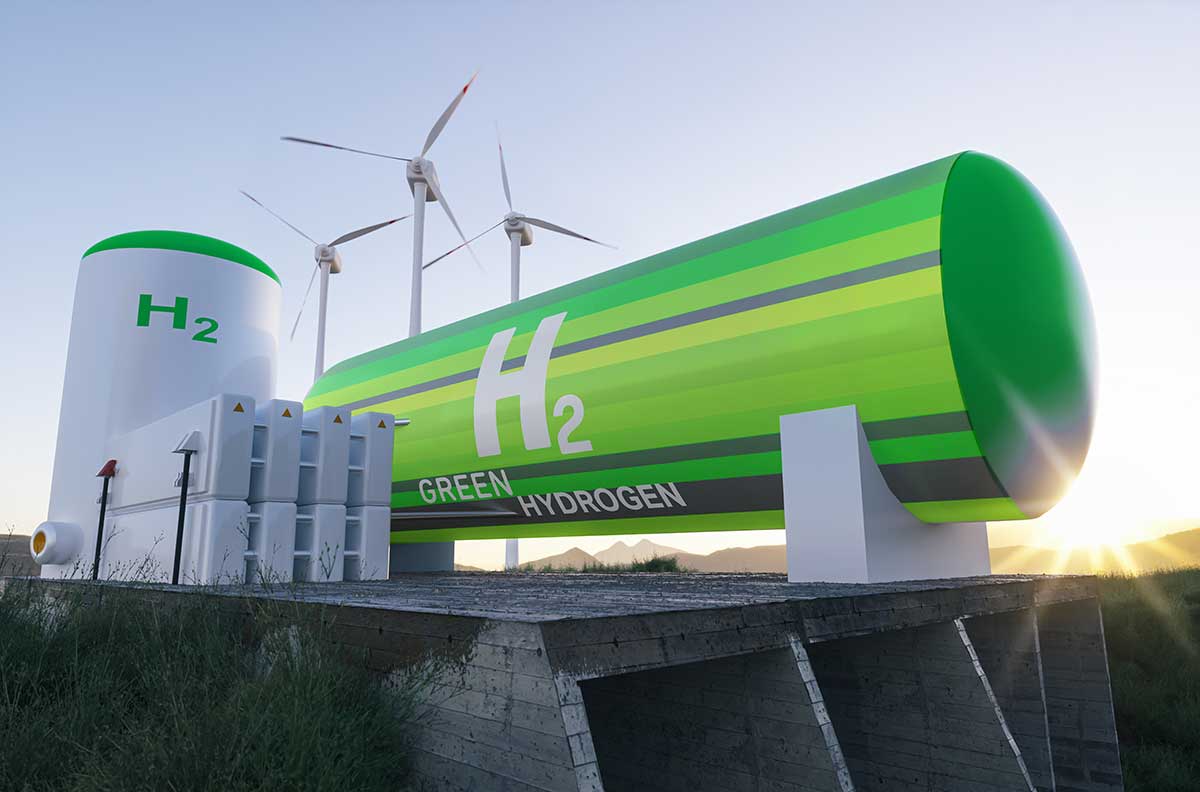
Nov 11, 2025
Blog artificial intelligence technology The Role of AI in Accelerating the Hydrogen Truck Market
As the world transitions to sustainable transport solutions, hydrogen-powered trucks are becoming a compelling option for long-haul and heavy-duty freight. Unlike battery electric vehicles (BEVs), hydrogen fuel cell trucks offer faster refueling, longer range, and the ability to handle heavier payloads efficiently. While these vehicles represent a leap forward in clean mobility, another transformative technology is accelerating their progress: Artificial Intelligence (AI).
AI is becoming a crucial driver of innovation in the hydrogen truck market. It helps improve performance, reduce costs, and support infrastructure development, all of which are crucial for the widespread adoption of hydrogen-powered transportation.
Hydrogen trucks use fuel cell systems to convert hydrogen gas into electricity, which powers an electric motor. Their only emission is water vapor, making them a clean alternative to diesel-powered trucks. These vehicles are especially attractive for logistics and freight companies operating over long distances, where refueling speed and range are critical.
However, hydrogen trucks face challenges such as high manufacturing costs, limited fueling infrastructure, and complex maintenance of fuel cells. This is where AI technologies are stepping in to provide smart, efficient solutions.
AI algorithms are being utilized to monitor and manage the performance of fuel cell stacks in real-time. These systems can predict wear and degradation, dynamically adjust operating conditions, and help extend the life of critical components. As a result, fleet operators can lower maintenance costs and minimize unexpected breakdowns.
Through predictive modeling, AI also assists engineers in optimizing fuel cell design and identifying the most suitable materials for enhanced performance and durability.
AI-powered route planning tools analyze traffic, terrain, load weight, and weather conditions to help hydrogen trucks operate more efficiently. These tools can recommend the most energy-efficient routes and adjust energy usage along the way to conserve hydrogen and extend vehicle range.
In regions where hydrogen fueling stations are limited, AI can also help drivers and fleet managers schedule refueling stops more effectively, reducing delays and avoiding operational bottlenecks.
One of the significant barriers to the adoption of hydrogen trucks is the lack of infrastructure. AI tools are now being used to model and plan hydrogen refueling networks. By analyzing fleet movement data, regional traffic flows, and economic patterns, AI can help governments and private companies identify the best locations for new fueling stations.
AI is also utilized in the production and distribution of hydrogen. For instance, it can balance supply and demand, optimize delivery routes for hydrogen tankers, and forecast future infrastructure needs based on growing demand for the fleet.
With AI-driven diagnostics, hydrogen trucks can continuously monitor critical systems and predict component failures before they occur, enabling proactive maintenance. This helps reduce vehicle downtime and improves safety for drivers and operators. These systems also enable more efficient service scheduling and reduce the workload on maintenance staff.
By leveraging real-time sensor data, AI enhances vehicle reliability, providing fleet managers with peace of mind as they transition to new energy technologies.
The hydrogen truck market is expanding steadily, with investments increasing across Europe, North America, and the Asia-Pacific region. Many countries are adopting hydrogen roadmaps and climate targets that include fuel cell trucks as a core component.
Major players in the automotive industry, including Hyundai, Toyota, Nikola Motors, and Daimler, are actively developing hydrogen trucks with AI-based control systems, telematics, and fleet optimization software.
AI is not just a feature of modern hydrogen vehicles. It is becoming a strategic asset that enhances every stage of the hydrogen truck value chain, from research and development (R&D) and manufacturing to deployment and real-world use.
Hydrogen fuel cell trucks represent the future of clean logistics. Their success depends not only on advancements in fuel cell technology but also on the integration of smart systems that can drive performance, efficiency, and scalability.
AI is proving to be a critical enabler of this shift. It is helping companies and policymakers overcome challenges, accelerate adoption, and unlock the full potential of hydrogen-powered transport. As clean energy and smart technology converge, the hydrogen truck market is moving forward with greater intelligence and momentum.
Consider becoming a member of the BCC Research Library and gain access to our full catalog of market research reports in your industry. Not seeing what you are looking for? We offer custom solutions too, including our new product line: Custom Intelligence Services.
Contact us today to find out more.

Sandeep is a Senior Executive in Marketing Operations at BCC Research, proficiently serving as a graphic designer and content creative specialist. His expertise extends to AutoCAD and Revit, and he has made valuable contributions to the event industry with his design skills.
The global oligonucleotides market spanning custom DNA/RNA sequences, therapeuti...

What if decoding a single cell, interpreting an entire genome, or identifying a ...

What if we could fix diseases by rewriting the body’s own instruction manual? Th...

We are your trusted research partner, providing actionable insights and custom consulting across life sciences, advanced materials, and technology. Allow BCC Research to nurture your smartest business decisions today, tomorrow, and beyond.
Contact UsBCC Research provides objective, unbiased measurement and assessment of market opportunities with detailed market research reports. Our experienced industry analysts assess growth opportunities, market sizing, technologies, applications, supply chains and companies with the singular goal of helping you make informed business decisions, free of noise and hype.